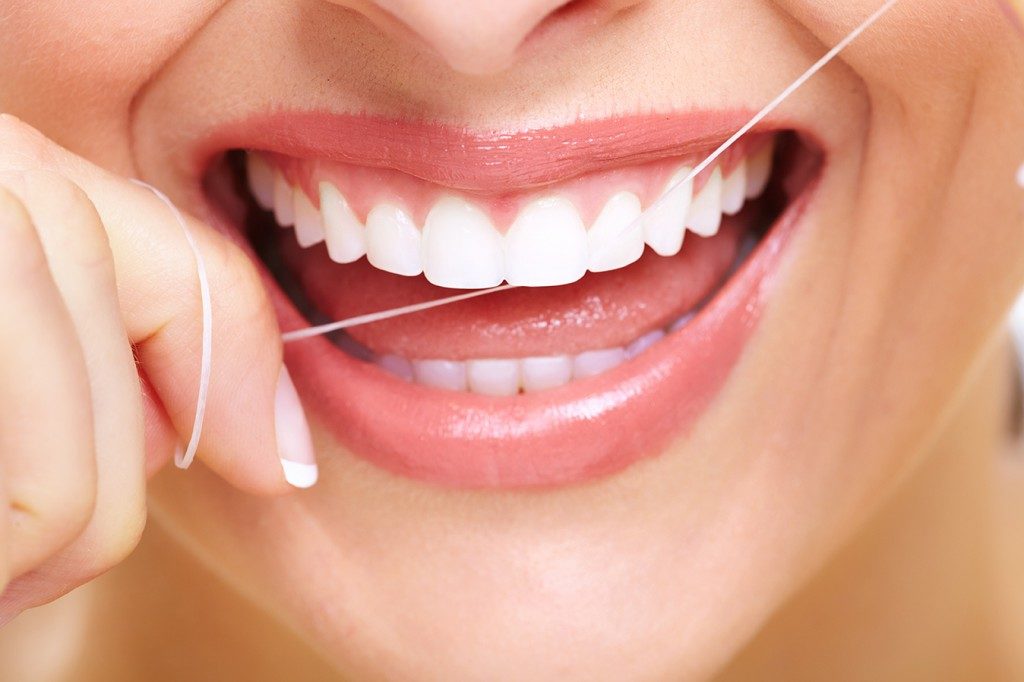We live in a day and age where almost everyone understands the importance of good oral hygiene. As such, if you were to ask 1,000 people if they know what flossing is all about, chances are every single one of them would say they do. Which is why it’s so surprising that such a huge number of adults and children alike still aren’t flossing as their dentists recommend.
These days, we have the option of high quality water flossers, traditional dental floss and all manner of weird and wonderful tools and accessories. Nevertheless, evidence seems to suggest that far too many people aren’t making use of them. What’s more, those that are perhaps don’t know as much about flossing as they think they do.
When it comes to the prevention of cavities, tooth loss, gum disease and so many other oral health problems, flossing really should be considered mandatory.
So for those who think they know a thing or two about flossing, here’s a quick rundown of several fascinating facts and figures you might find interesting:
- First of all, research suggests that less than half of all adults currently floss their teeth on a daily basis. Even more incredibly, somewhere in the region of 20% do not floss at all! Which is quite remarkable, when considering the fact that pretty much 100% of people are aware that dentists recommend flossing twice a day. Good advice apparently going in one ear and out the other!
- You might know that flossing exists for the primary purpose of removing the bits and pieces from between our teeth that may be missed while brushing. But what you might not be aware of is the fact that when you leave this debris behind, it sits there indefinitely, goes rotten and breeds bacteria like wildfire. Unsurprisingly therefore, failing to floss can be one of the main causes of bad breath.
- If you have been flossing your teeth after brushing all these years, experts suggest you’ve been doing it all wrong. Apparently, the most effective way of flossing is to do so before you brush. Which when you think about it makes sense – flossing before you brush gets rid of as much debris as possible from between your teeth, which then in turn makes it easier for your toothbrush, toothpaste and fluoride to get in-between the teeth and do its job.
- The vast majority of people have absolutely no idea as to how much dental floss they are supposed to use, in order to clean their whole mouth properly. While estimates vary, most dentists recommend a piece that measures around 20 inches in length.
- Failing to floss on a regular basis can increase the risk of bleeding gums and gum disease. That said, the same is also true for improper flossing – that being using the kinds of tools and/or flossing action that isn’t suitable for your own teeth and gums. Make no mistake about it – all dental floss and related tools are by no means identical.
- Always use a fresh and clean section of dental floss when moving from one tool to the next. The reason being that if you fail to do so, you run the risk of transferring all manner of nasty bacteria and debris from one place to another. Which for obvious reasons is somewhat counterproductive.
- While there’s much debate as to the most effective type of traditional dental floss available, dentists comprehensively agree that anything is better than nothing. Just as long as it is used properly, most types of traditional dental floss can and will get the job done.
- For those looking to add a little flavour to the experience, dental floss all over the world is available in some of the most bizarre flavours imaginable. Some of the more common and popular examples include bubble gum, cinnamon and mint, though it’s also possible to pick up smoky bacon-flavoured dental floss online. Not that we’d necessarily recommend doing so – it is a little bit of a strange sight!
- No matter how much you spend on flossing, it has the potential to save you plenty of money in the long run. Even if you splash out on the most outstanding water flosser money can buy, you could still be looking at a hugely cost-effective investment. The reason being that an investment in your dental health represents the kind of preventative investment that can reduce the likelihood of having to pay for expensive dental treatments further down the line.
- Given the fact that oral health is directly linked with a variety of diseases including diabetes and heart disease, the same can be said for flossing. Which in turn means that even if you aren’t particularly keen on it, it’s worth bearing in mind the benefits of maintaining immaculate oral health.
- As far as the experts are concerned, brushing your teeth but failing to floss is a little bit like washing only 70% of your body, each time you take a bath or shower. When you consider the fact that this is something millions of people have a habit of doing throughout their entire lives, the thought becomes rather unpleasant to say the least!
- Last but not least, a number of studies carried out both in the United Kingdom and United States have found that for whatever the reason, women floss their teeth more often and more thoroughly than men.
Of course, there’s no getting away from the fact that flossing is never going to be the kind of thing that most people will genuinely enjoy. Nevertheless, it’s important to think carefully about what you stand to get back, in return for your efforts. You are essentially looking at just a couple of minutes each day for the preservation of your oral health and overall wellbeing in general.
Surely it’s a small price to pay, right?
